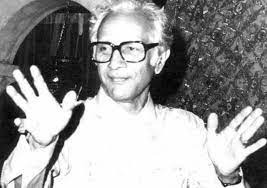‘Funtoosh’: Chetan Anand’s Dramatic Departure
In the annals of Indian film, Dev Anand is known as an iconic and captivating performer. His movies are adored for their nostalgia, romanticism, and timeless music. Cinema is nonetheless susceptible to shifting creative sensibilities and interests, just like any other form of art. This article discusses Dev Anand’s brother Chetan Anand in reference to a notable and remarkable event that took place on the Hindi movie “Funtoosh” set one day. Chetan Anand fled the set when the two got into a violent altercation. When Chetan Anand announced his ambition to produce movies with real tales and conflicts, in sharp contrast to the era’s hero-and-heroine singing and dancing formula, a struggle between cinematic values was revealed.
Dev Anand was at the zenith of his career in 1956 after being acknowledged as the standard romantic hero of Hindi cinema. Chetan Anand, his elder brother, was similarly bright but had quite distinct aesthetic preferences. The two were collaborating on the film “Funtoosh,” when the tension between them finally burst on the set.
The brilliant filmmaker Chetan Anand had a strong ambition to make movies that probed significant social problems, delved into complicated personalities, and depicted the challenges of ordinary life. He achieved this with classic works like “Neecha Nagar” and “Afsar,” which are still cherished today. He thought that Indian cinema at the time was stuck in a predictable rut, with much of the focus on the hero and heroine performing and dancing in beautiful locations.
On the other hand, the people adored the elegant and charming actor Dev Anand. He firmly believed in the charm of escapist movies, where romance and pleasure were the key draws. He personified the lovable hero who makes people’s hearts flutter on screen, and he used movies as a way to escape the harsh truths of reality.
The animosity between the two brothers reached its zenith on a pivotal day on the “Funtoosh” sets. The film fit Dev Anand’s description of cinema as a musical comic love narrative. But as the film’s director, Chetan Anand, became more dissatisfied with the direction it was going, he discovered himself.
Concerned, Chetan Anand approached Vijay Anand, the film’s producer, and his brother. He said that he did not favor the cinematic approach of Dev Anand. Chetan Anand wanted to make movies that explored significant issues and offered a complex vision of society. He wanted the viewers of his movies to experience strong emotions.
Chetan Anand’s frustration was evident. He believed that the hero-and-heroine formula was detrimental to the possibilities of Indian film. His method of creating movies was more in line with the work of filmmakers like Guru Dutt and Bimal Roy, who were well known for telling tales that were both emotionally engaging and relevant to contemporary society.
In the midst of the heated argument, Chetan Anand made a crucial decision. Declaring that he was not Dev Anand’s kind of filmmaker and that he would no longer be able to compromise on his aesthetic principles, he made this statement. Chetan was tired of the artistic and ideological differences that had prevented the development of “Funtoosh.”
He then pleaded with Vijay Anand to leave the movie alone as he turned to face him. This quick and unexpected departure from the movie set startled the Anand family as well as the business. It was a powerful sequence that emphasized the consistency of Chetan Anand’s creative vision.
When Chetan Anand departed from the “Funtoosh” sets, Indian film underwent a sea change. It represented the growing distance between two gifted brothers who, in spite of having various creative aspirations, were nevertheless quite far from one another.
Without Chetan Anand’s help, “Funtoosh” was eventually completed, and Dev Anand’s star power helped it to be a financial success. However, the tragedy had a long-lasting impact on both brothers. Contrary to Chetan Anand, who went on to produce movies like “Haqeeqat” and “Aakhri Khat,” Dev Anand carried on producing movies in his own way.
An important turning point in Indian film history was the disagreement between Chetan Anand and Dev Anand on the “Funtoosh” set on cinematic values. It highlighted the conflict between cinematic escapism and socially aware narrative, two essential but usually at odds components of the industry. The choice to depart made by Chetan Anand demonstrated his uncompromising commitment to his creative values and had a long-lasting effect on the development of his professional career as a filmmaker. The two brothers’ contributions to Indian cinema, which exemplify the variety of cinematic expression available in the largest film industry in the world, are still relevant and important today despite the fact that they may have followed separate life paths.







